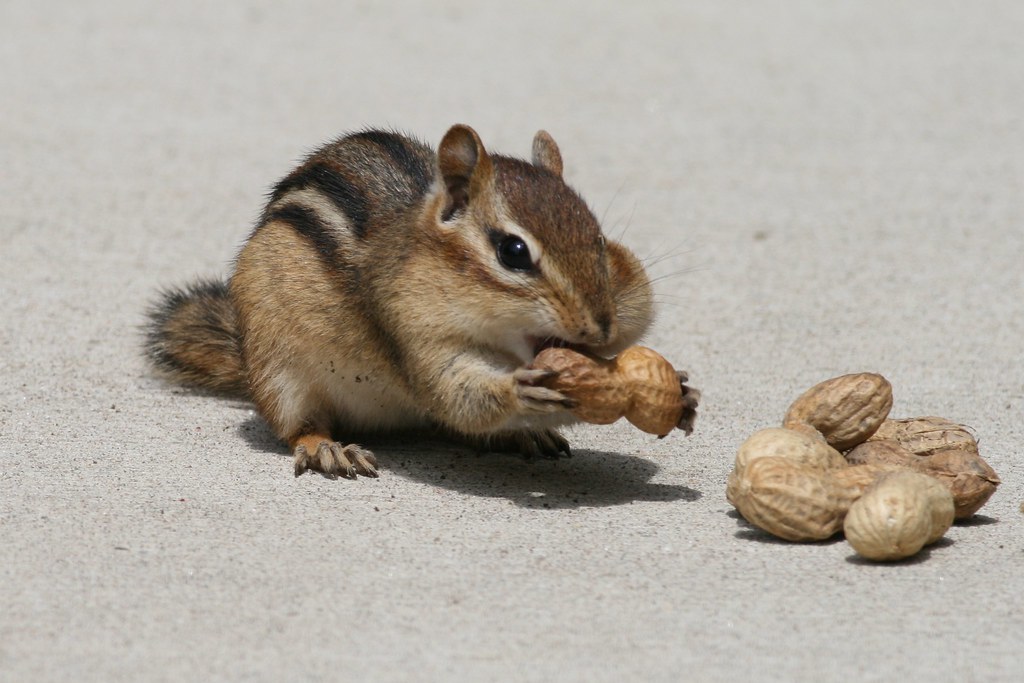Lin Orndorf
POINTS TOTAL
- 0 TODAY
- 0 THIS WEEK
- 280 TOTAL
participant impact
-
UP TO19conversationswith people
-
UP TO19milesnot traveled by car
-
UP TO19milestraveled by foot
-
UP TO45minutesspent learning
-
UP TO280minutesspent outdoors
-
UP TO280minutesnot spent in front of a screen
-
UP TO13pounds of CO2have been saved
Lin's actions
Climate
Use Muscle Power
I will cut my car trip mileage by only taking necessary trips, and I will only use muscle-powered transportation for all other trips.
Wildlife
Research a Wild Animal
I will spend at least 30 minutes learning about a wild animal I find interesting, including their life cycle, habitat, ecosystem functions, and interactions with humans (if any!).
Food
Watch a Documentary about Food Sovereignty
I will watch 1 documentary(ies) about food sovereignty: the right of local peoples to control their own food systems including markets, ecological resources, food cultures and production methods.
Action Track: Building Resilience
Spend Time Outside
I will replace 30 minute(s) each day typically spent inside (computer time, watching television, etc.) with quality time outside that follows CDC guidelines for preventing disease spread.
Action Track: Building Resilience
Connect While Social Distancing
I will connect with at least 2 person/people a day through phone call or video chat to support mine and other’s mental and emotional health during this challenging time.
Participant Feed
Reflection, encouragement, and relationship building are all important aspects of getting a new habit to stick.
Share thoughts, encourage others, and reinforce positive new habits on the Feed.
To get started, share “your why.” Why did you join the challenge and choose the actions you did?
-
 Lin Orndorf 4/22/2020 8:32 AMToday is Earth Day, which I think should be a national holiday. This is the 50th anniversary of Earth Day. That very first Earth Day was initiated by Senator Gaylord Nelson of Wisconsin as a "teach-in" drawing on the energy of student anti-war protesters. His goal was to raise the public consciousness about pollution. I find it a bit ironic that 50 years later, I am holding a different sort of "teach-in" because we are all "staying home to stay safe" during the COVID19 pandemic.
Lin Orndorf 4/22/2020 8:32 AMToday is Earth Day, which I think should be a national holiday. This is the 50th anniversary of Earth Day. That very first Earth Day was initiated by Senator Gaylord Nelson of Wisconsin as a "teach-in" drawing on the energy of student anti-war protesters. His goal was to raise the public consciousness about pollution. I find it a bit ironic that 50 years later, I am holding a different sort of "teach-in" because we are all "staying home to stay safe" during the COVID19 pandemic.
Another interesting tidbit about the first Earth Day, and much of the pro-environmental legislation that followed, is that it was a bi-partisan movement. Senator Nelson was a Democrat and his Earth Day Co-Chair was a Republican. Here we are 50 years later experiencing some of the most extreme partisanship the country's ever known. It saddens me that there is so much divisiveness during a crisis and on a day that should bring us all together. Perhaps COVID19 and Earth Day 50 will help folks reflect, re-prioritize, and make changes that will improve human well-being and protect our one and only planet.
I plan on spending time outside today communing with the plants and critters who share our trees, "yard," and creek. I hope everyone does. It's amazing out there!
-
 Renee Mazurek 4/22/2020 3:18 PMThanks for this! Good point about the bipartisan nature of the first earth day! Love it!
Renee Mazurek 4/22/2020 3:18 PMThanks for this! Good point about the bipartisan nature of the first earth day! Love it!
-
-
REFLECTION QUESTIONWildlife Research a Wild AnimalWhat interesting facts did you learn about the animal you researched? What are some of your favorite things about this animal?
 Lin Orndorf 4/11/2020 12:29 PMI did a little research about chipmunks. I love seeing these little critters scurrying around our retaining walls in the front yard, and the tall grass, fallen logs, and jewel weed in our backyard. I learned that there are 25 species of these tiny racing-striped members of the squirrel family, and 24 of those are native to North America. The species we have is the Eastern Chipmunk (Tamius striatus). Chipmunks usually dig burrows that are up to 3 feet deep and can extend to 20 feet from the opening. They also dig smaller burrows to duck into while foraging to avoid being snatched by a predator such as a hawk. Chipmunks are omnivores whose summer diet is more diverse than their winter diet of stored seeds and nuts. In addition to their black and white racing stripes, the other iconic feature of chipmunks is the cheek pouch, one in each cheek. Chipmunks spend much of the early morning and late afternoon hours gathering food. They can gather as many as 165 acorns a day and their cheek pouches hold up to five rounded tablespoons of seeds. These little critters also sleep about 15 hours a day. After running back and forth foraging and storing food, they really need a long nap.
Lin Orndorf 4/11/2020 12:29 PMI did a little research about chipmunks. I love seeing these little critters scurrying around our retaining walls in the front yard, and the tall grass, fallen logs, and jewel weed in our backyard. I learned that there are 25 species of these tiny racing-striped members of the squirrel family, and 24 of those are native to North America. The species we have is the Eastern Chipmunk (Tamius striatus). Chipmunks usually dig burrows that are up to 3 feet deep and can extend to 20 feet from the opening. They also dig smaller burrows to duck into while foraging to avoid being snatched by a predator such as a hawk. Chipmunks are omnivores whose summer diet is more diverse than their winter diet of stored seeds and nuts. In addition to their black and white racing stripes, the other iconic feature of chipmunks is the cheek pouch, one in each cheek. Chipmunks spend much of the early morning and late afternoon hours gathering food. They can gather as many as 165 acorns a day and their cheek pouches hold up to five rounded tablespoons of seeds. These little critters also sleep about 15 hours a day. After running back and forth foraging and storing food, they really need a long nap.
